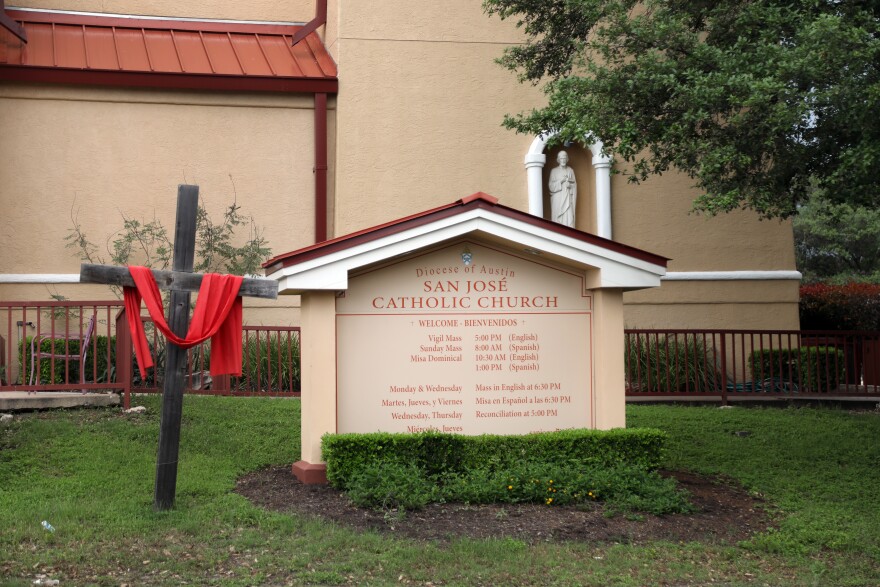For many people of faith in Austin, not being able to come together to celebrate religious holidays is one of the most painful concessions of the coronavirus pandemic, especially in a time filled with so much fear and uncertainty.
But in an ever-evolving technological world, these places of worship are adapting to keep their communities connected.
Many congregations have turned to virtual communion, like Zoom video meetings or live social media streams, since large gatherings have been discouraged to slow the spread of COVID-19.
RELATED | Gov. Abbott Says Religious Services Are Essential — So Can Churches Still Meet? Here's What He Says
Amy Cohen, assistant rabbi at Temple Beth Shalom in Austin, said before people were asked to stay at home and limit their contact with others, the temple didn’t offer livestream services, but now they do.
“The funny thing is we actually have more people coming to services online than we’ve had, for the most part, in person before this started, which I think really speaks to what people need right now,” she said. “They need connection, they need spirituality and they need to see familiar faces.”
Many people celebrated Passover and Easter online this past week. Cohen said rather than hosting a big Seder celebration over Zoom, families from Temple Beth Shalom video chatted in small groups.

“We just really wanted them to have those connections, and we wanted to make sure people who were alone could [connect] with another congregant’s family,” she said.
Constance Shabazz is a practicing Muslim who’s been in Austin for about four years now. Shabazz has been connecting with the community organization Muslim Space online since stay-at-home orders went into effect. And now that so many places of worship have gone online, she's been able to reconnect with her former faith community in Chicago.
“I think we do more networking now online than we ever did before,” she said, laughing. “We had the faith service. Then, afterwards, the imam kept the line open on Zoom and people were talking, ‘Hey, how are you doing?’ and ‘Give me a call!’ So it’s really bringing us together.”
A physician, Shabazz says she’s been staying on top of the developments around COVID-19 and feels it is important to keep her fellow worshippers informed. She even stood up after a prayer service last month and implored people to take the virus seriously.
"To me, what this has brought to our mind ... is how much we need each other, that human contact with each other."
Attendance at the services she attends has just about doubled since things moved online, she said. She thinks worshipping from home is providing more opportunities for people to grow closer.
“This has really been a way of actually bringing more people into a community setting because of the technology,” she said. “And we still feel that we are carrying out our obligations.”
As Ramadan nears and the future of large gatherings remains fuzzy, Shabazz said the community is going to miss those opportunities to be together after fasting in prayer. But they’re going to celebrate how they can.
“To me, what this has brought to our mind … is how much we need each other, that human contact with each other,” she said. “And making us think about people we just don’t think about contacting on a regular basis. I mean, I’ve been going through my contacts and saying, ‘Oh, how’s so-and-so doing?’”
Bishop Joe Vasquez, who celebrated a live-streamed Easter Vigil Mass at the nearly empty St. Mary Cathedral in downtown Austin on Saturday night, shared a similar message.
“This is a time for all of us to be able to reach out to others,” he said. “Can we pick up the phone and call someone, maybe an elderly parent or someone we know who lives alone? Can we take the time to call one another, or … write a card to someone we need to encourage?”
Got a tip? Email Jerry Quijano jerry@kut.org. Follow him on Twitter @jerryquijano.
If you found the reporting above valuable, please consider making a donation to support it. Your gift pays for everything you find on KUT.org. Thanks for donating today.




